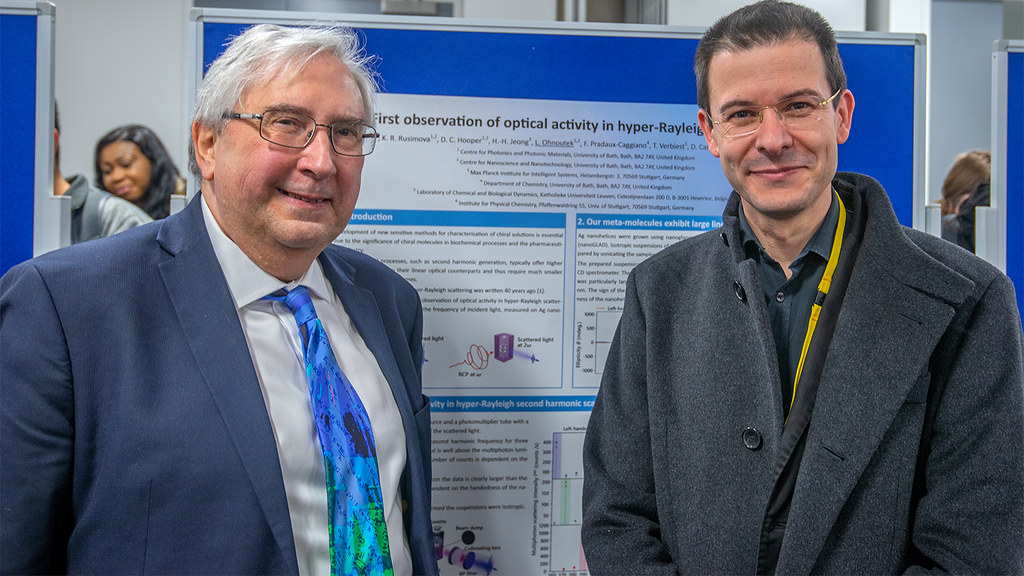Professor Ventsislav Valev, head of the Department of Physics at the University of Bath and Professor David Andrews (University of East Anglia) have been jointly awarded 2023 Institute of Physics Thomas Young Medal and Prize for the discovery of chirality-sensitive optical harmonic scattering. This effect was first predicted theoretically in 1979 and was demonstrated experimentally 40 years later.
The Institute of Physics (IOP) is the professional body and learned society for physics, and the leading body for practising physicists, in the UK and Ireland. It awards silver medals for distinguished contributions to the development or reputation of physics across 17 subject areas. The Thomas Young Medal has been attributed since 1941, for contributions to optics, including work related to physics outside the visible region.
Professor Valev, said: “I am delighted and deeply honoured to receive this prestigious award, together with Professor David Andrews. Thomas Young’s work has been an inspiration for me since secondary school.
“Receiving an award in his name is thrilling and it was only possible because of the excellent work of our international team of PhD students, postdoctoral fellows and academics.”
Professor Andrews added: “It is a tremendous honour to be a joint recipient of this award, and a delight to share it with Professor Valev, an outstanding spectroscopist.”
Professor Ian White, Vice-Chancellor at the Univerisity of Bath, said: “This major international award recognises Ventsi’s leadership in optics and illustrates his impact on the research field of nanophotonics. Our department of physics does an excellent work in the areas of photonics and nanoscience and I am very pleased to see it recognised with the Thomas Young Medal.”
Professor Sarah Hainsworth, Pro-Vice-Chancellor (Research & Enterprise) said: “I am delighted to see that Ventsi Valev has been awarded the Thomas Young Medal for his outstanding contributions to Optics and Photonic.
"This demonstrates the significance of his experimental ability to validate the theoretical predication of chirality-sensitive optical harmonic scattering first predicted over 40 years ago. It is a great example of the impact of the University of Bath’s research in physics. Many congratulations Ventsi!”
Professor Valev has been internationally recognised for his ground-breaking contributions to nonlinear (nano) photonics.
In 2019, his team published the first experimental results on the effects predicted by David Andrews in 1979. The work demonstrated that upon illuminating chiral (twisted) nanoparticles with circularly polarised light, at frequency (f), the intensity of light scattered at the second-harmonic frequency (2f) can reveal the direction of twist within the nanoparticles.
This effect is of fundamental scientific importance, as it is the most direct expression of chirality, in nonlinear optics. It could lead to applications ranging from developing new materials to novel drug discovery.
Professor Valev’s work has resulted in over 100 research papers, many appearing in top scientific journals. In 2021, he was elected Fellow of the Institute of Physics and, a year later, Fellow of Optica. In 2022, his team was awarded the 2022 Horizon Prize form the Faraday Division of the Royal Society of Chemistry and, in 2023, he was elected Fellow of SPIE (the international society for optics and photonics).
He has communicated his passion for physics to the general public through interviews (on television, radio and the press), articles, and over 70 visits to primary schools, for which he was awarded the Vice-Chancellor's Award for Public Engagement with Research in 2018.

